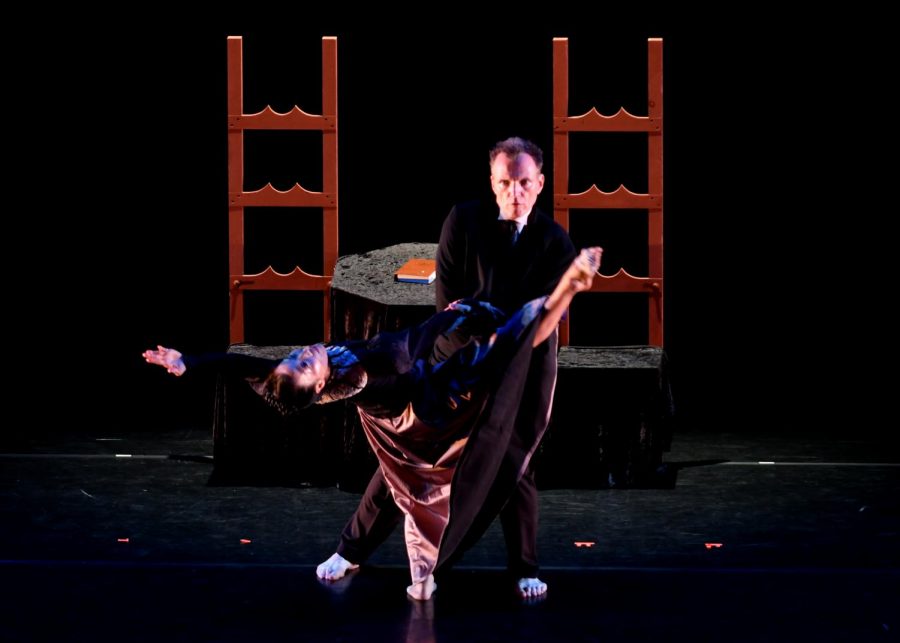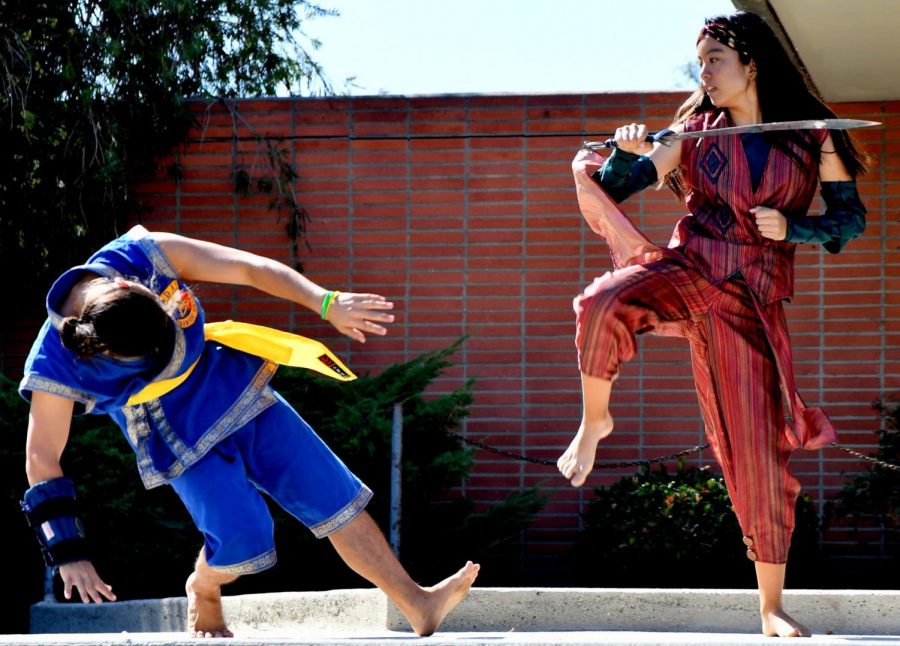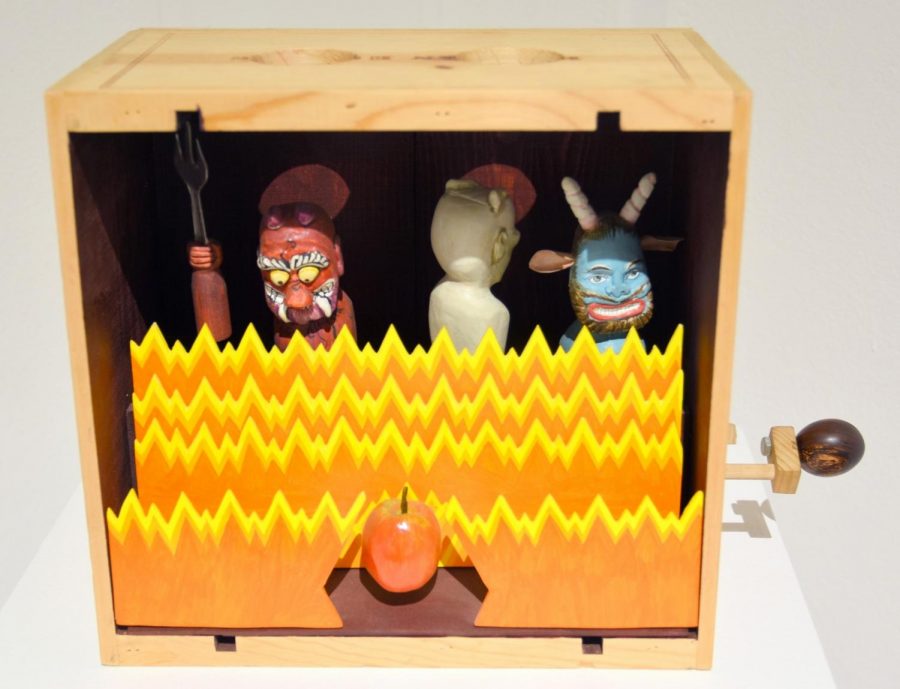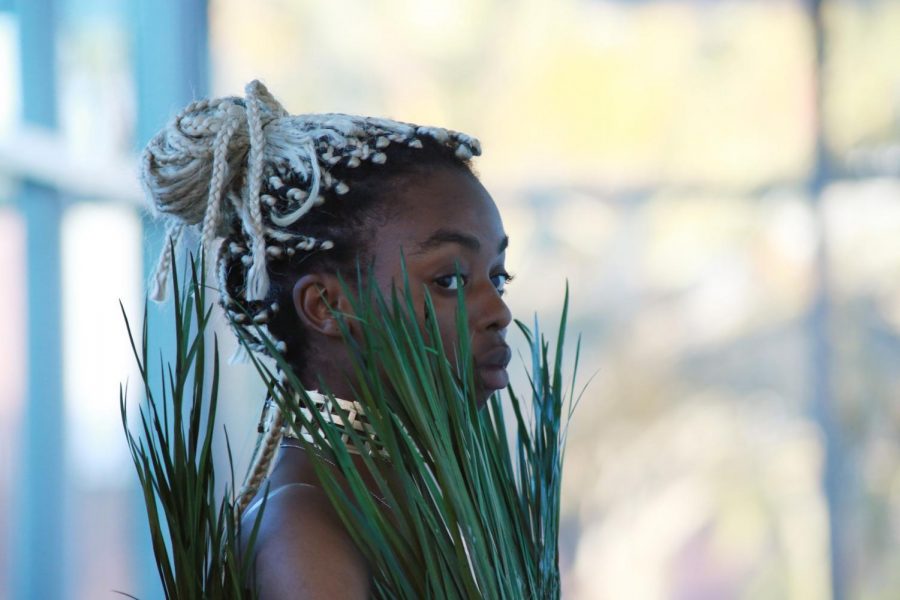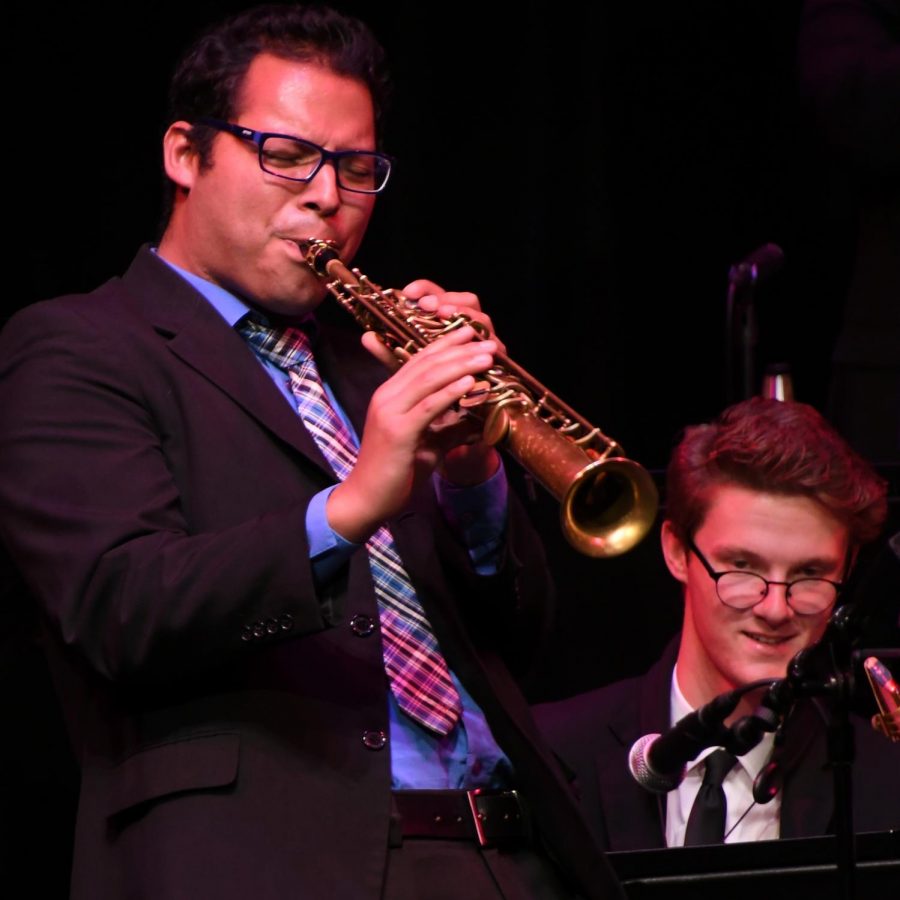Five women walking in long strides, barefoot with their head high onto the forefront. The Uba Sisters shift in unison as they hopped from the leading foot and wailed their arms to Ogene, a style of Igbo music made by the Igbo people of Nigeria.
In an effort to embrace Black History Month, the Black Student Union hosted the “Uba Sisters,” a Nigerian dance collective that mixes traditional Nigerian music with contemporary musical styles on Thursday, Feb. 25 at the East Dining Room.
Ogene is a mixture of high percussion, up-tempo beats and auto-tuned filled lyrics that creates an environment palatable for social recreation.
The dancers all dressed in light material made of cotton fabric with a red flannel-like appearance that allows the dancers to perform in unique dancing styles.
Deeply rooted within Nigerian culture, it is often used during ceremonial events such as funerals, celebrations or to tell a story.
“A sought to enlighten students as a chance for people to learn black culture within America as a culture immigrated from all over Africa like Nigeria and Ethiopia,” Black Student Union President Prince Obah, 18, business major said.
As the Uba Sisters finish, they walk out just as Obah preceded to invite everyone in the audience to practice the dance along with the dancers.
No one was immediately adamant to participate but that quickly changed as soon as a group of students bolted onto the front of the room.
Moments later more people rose up to the occasion and started dancing along with the Uba sisters.
“I was in the moment, at first I didn’t want to (dance) but my friends started getting hyped, and next thing I knew I was dancing with everyone getting turnt,” said Ebuka Aniagba, 18, nursing major said.
Obah later announced that the students become the teachers and to “teach the dancers the moves they have just learned.”
Diminished by the lack of confidence from students, the Uba Sisters reassured them by dancing along at an individual level. Stepping side to side while showing their dexterity with hand gestures.
One student who attended the event did not participate in the dance said she loves “dancing tango and jazz in her spare time.”
“I have an African History course and it was required to go, so that’s why I came but now that I saw it in person I would like to try the dance sometime,” Magdalena Cisneros, 22, psychology major said.
A mix of different ethnicities was dancing along with the Uba sisters. However, not everyone participated with them.
“It doesn’t matter where you come you from,” Barry Uba, manager of the Uba Sisters said. “You can love the music and get involved because the rhythm and sound is superb.”


